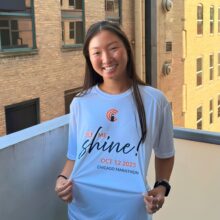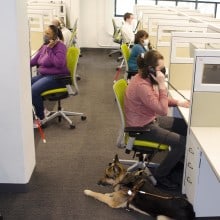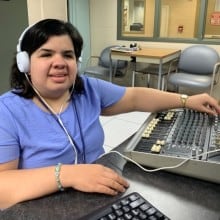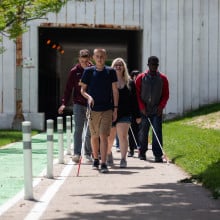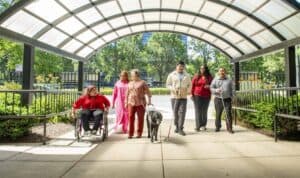Getting in the marathon mindset: training with multiple disabilities
“I used to hate challenges and adverse circumstances. Now I welcome them all,” says Marina, who is currently training to participate in the 2020 Chicago Marathon amidst the COVID-19 pandemic. Marina completed an internship recently in The Chicago Lighthouse’s Financial Development Department and has multiple disabilities. She has progressive retinitis pigmentosa –which causes gradual vision loss — speech dysarthria, and uses a manual wheelchair. Her marathon training has ignited her spirit and renewed her love of sports.
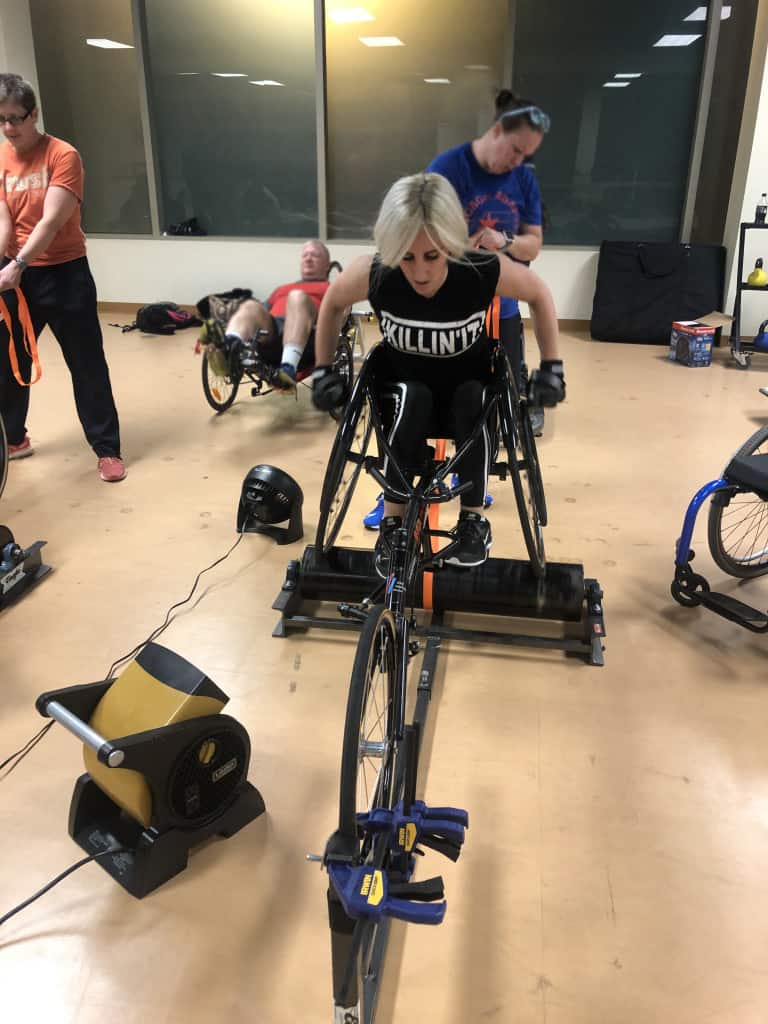
Throughout her life, Marina has always enjoyed physical activity. At the age of 15, she started participating in wheelchair basketball. During her basketball career, she drew inspiration from one of her favorite players Kobe Bryant. “I cultivated my athleticism from watching and learning from him. I also learned a lot about the ‘mental component’ of the game from him, particularly how to maintain that inner grit, mental toughness, and relentlessness that I needed to—not only succeed in basketball—but to succeed in life, especially as someone who has multiple disabilities,” she says.
In 2010, a couple years prior to retiring from basketball, Marina set her sights on participating in the Chicago Marathon. She watched the event every year and was inspired by seeing runners from all walks of life enduring and finishing the course. In 2019, after facing some personal challenges and hardships, she decided to end the year with a fearless mentality and committed to training for the 2020 Chicago Marathon, currently scheduled for October.
To help her with her training, she joined the Dare2Tri Paralympic Club’s marathon team. Dare2Tri is a Chicago-based non-profit that provides sports and fitness opportunities to athletes with physical and visual disabilities, as well as Veterans. As someone who is visually impaired, the challenge for Marina lies less in the athleticism needed to complete the marathon, but rather becoming “visually familiar” with the route. This summer, she is planning to implement Orientation & Mobility training into her routine by training on the exact route of the marathon.
Due to the circumstances surrounding COVID-19, her training routine has changed from what she originally anticipated. However, this did not set Marina back, as she did what she says her and other people with disabilities do best: adapt. While she used to go to her local gym every day, she now does strength training at home with weights. She uses her former high school’s track course to complete her race training. Marina states that her training and goal of completing the marathon have helped her cope with the stresses surrounding the pandemic. “Working out and training is another form of meditation for me where it allows me to release all of the pent-up energy and emotions – and eventually brings me back into a state of peace: peace with myself and peace with the world,” she says. “Training has also been a great reminder for me, personally, of how far I have come and how far I can go if I just put the effort and dedication into whatever I want to do next.”
To other individuals with disabilities who are interested in trying a new sport or activity, Marina shares this advice: “Do not be afraid to try new things – because there is always a way. We now live in a world where we have adaptive sports, which is AMAZING….Getting involved in sports and fitness open many doors for us, including being a part of a community (or team) and finding what you are really made of in terms of understanding your physical and mental make-up.”

